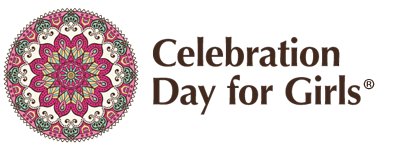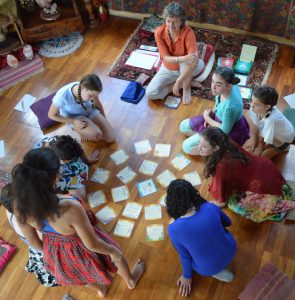Foundations of Menstrual Education
We are really excited about our new Foundations of Menstrual Education training!
This is now a prerequisite part of the Celebration Day for Girls Facilitator Training program.
The first part of the new CDG training is Foundations of Menstrual Education. This will be available online as an 8 week course, with weekly Zoom reflection, connection and discussion sessions. This course runs twice a year, usually in February and September. Make sure you are signed up to our mailing list to get notifications of upcoming training dates.
The second part is the Celebration Day for Girls Facilitator Training itself, which will be available as in-person 2.5 day training or online over 8 weeks. As well as giving you all you need in programme materials, you will leave with the physical resources to start offering workshops straight away and a comprehensive toolkit of promotional materials and ongoing support.
We’re excited about the evolution of Celebration Day for Girls and look forward to sharing this journey with you.
Foundations of Menstrual Education
Foundations of Menstrual Education will also be available as a stand alone training providing practical and engaging menstrual education workshops to support the creation of a positive menstrual culture where ever you live, work, study and play.

